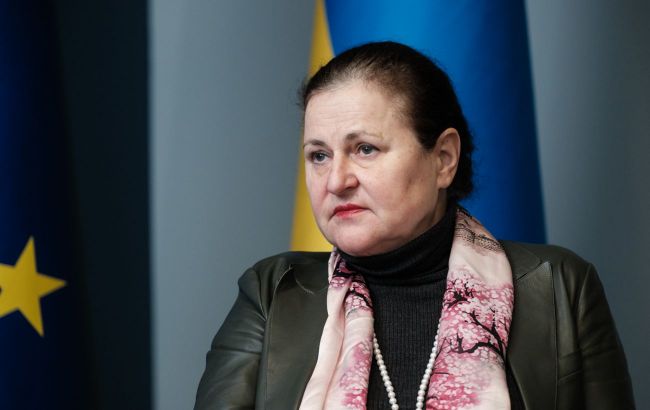EU reveals 3 reasons why Ukraine backed off anti-corruption law changes
 Photo: EU Ambassador to Ukraine Katarína Mathernová (Vitalii Nosach, RBC-Ukraine)
Photo: EU Ambassador to Ukraine Katarína Mathernová (Vitalii Nosach, RBC-Ukraine)
Ukraine's government has rolled back changes to the draft law on the National Anti-Corruption Bureau (NABU) and the Specialized Anti-Corruption Prosecutor's Office (SAPO) due to the influence of three key factors, according to the European Union Ambassador to Ukraine, Katarína Mathernová.
"This week, something important happened – not only for Ukraine, but also for the trust between Ukraine and its closest partner, the European Union," she said.
According to the ambassador, the restoration of institutional independence for NABU and SAPO became possible due to three factors:
-
the voice of the public,
-
intense behind-the-scenes negotiations without cameras or microphones,
-
the ability of leaders to admit mistakes for the good of the country.
"President Zelenskyy and his Rada team deserve recognition for stepping back, listening to criticism, proposing a new law, and ensuring its smooth adoption in the Rada," Mathernová added.
She added that Ukraine now needs institutions that enjoy public trust, and the EU needs a partner it can trust and rely on.
"This week, we moved closer to both goals. But the journey is far from over," the EU Ambassador to Ukraine emphasized.
New law on NABU and SAPO
The need to restore the independence of NABU and SAPO arose after the Verkhovna Rada (Ukrainian Parliament - ed.) passed a law that reduced the powers of these two key anti-corruption bodies.
In response, Ukrainians took to the streets in protest. At the same time, the European Commission called the new law "a serious step back" for Ukraine.
Subsequently, on July 31, the Verkhovna Rada adopted a new law that effectively restores the independence of NABU and SAPO. The author of the bill is President Volodymyr Zelenskyy. On the same day, the law was signed and published in the government’s official newspaper.

